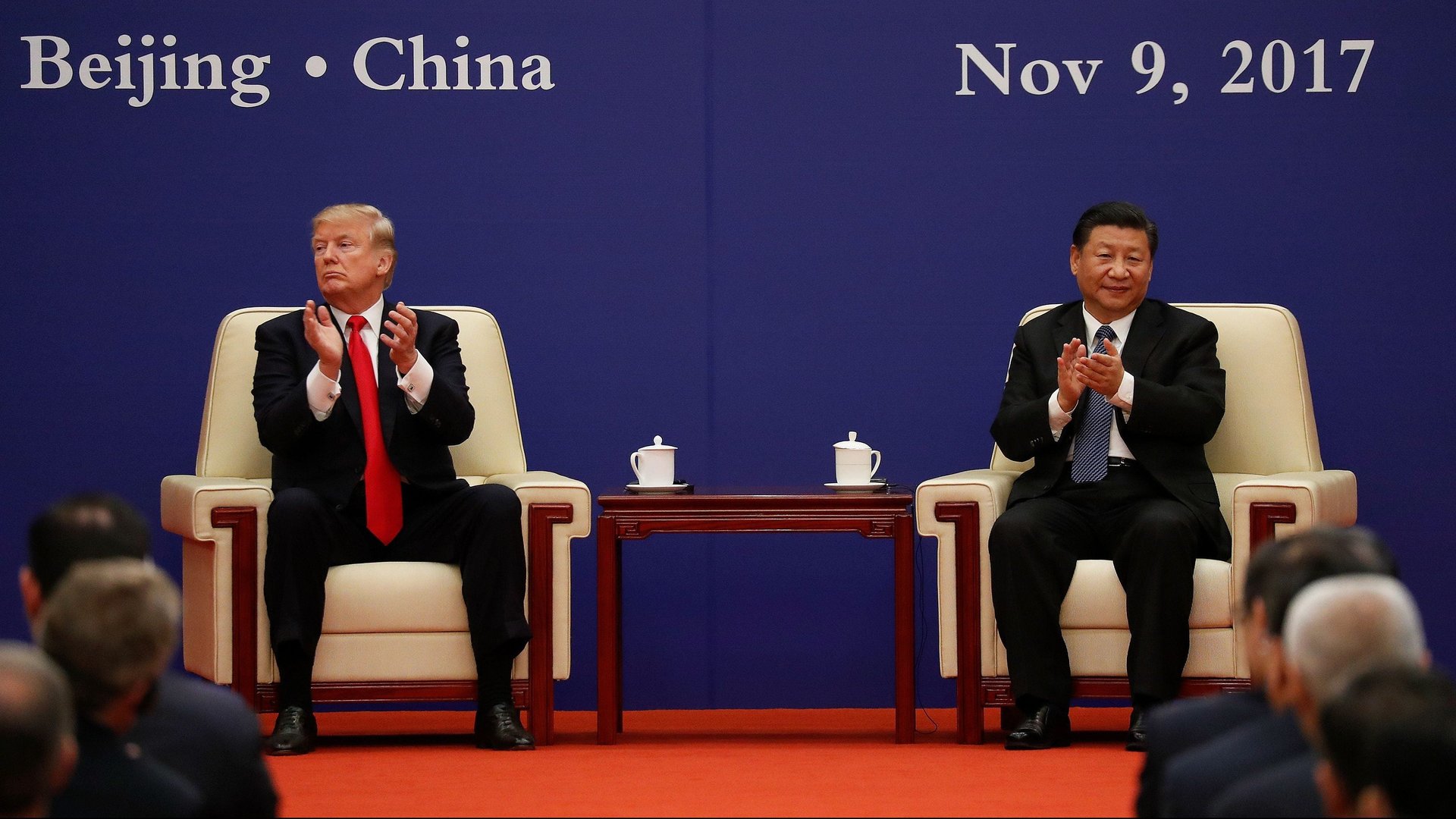Trump boasts of a “great future” for China and the US. China isn’t so convinced
As the trade war between the US and China escalates, Donald Trump expressed rare optimism in a tweet yesterday (April 8), which said that China will take down its trade barriers and that the two sides would reach a deal on intellectual property.


As the trade war between the US and China escalates, Donald Trump expressed rare optimism in a tweet yesterday (April 8), which said that China will take down its trade barriers and that the two sides would reach a deal on intellectual property.
Perhaps the bold declaration that the two leaders would “always be friends” isn’t so surprising, given Trump’s long-standing flattery of the Chinese leader. What’s more surprising is Trump’s suggestion—without giving a reason—that China would back down on trade.
Trade tensions between the US and China have worsened, as tit-for-tat retaliatory tariffs gathered speed last week. In his latest move—reportedly unleashed without any internal debates—Trump threatened China with tariffs on another $100 billion of Chinese imports. China’s commerce ministry has pledged to fight Trump’s policies “at any cost,” even if China is now running out of American imports to penalize thanks to its huge trade surplus with the US.
China doesn’t seem convinced by Trump’s tweet. The Global Times—a nationalistic state tabloid which doesn’t represent, but sometimes echoes, Beijing’s official thinking—warned in an editorial that Trump’s tweet doesn’t necessarily mean an attitude change on trade, but could be a way for him to soothe public dissatisfaction over the recent stock market plunge.
Xiakedao, a social media account run by government mouthpiece the People’s Daily, argued (link in Chinese) that Trump’s seemingly softened tone against China is a negotiating strategy straight out of his 1987 autobiography The Art of the Deal. In the best-selling book, Trump detailed how he “played” Theodore Dobias, his mentor during his days at the New York Military Academy, which Xiaokedao believed was a source of inspiration for Trump’s trade tweet, in particular this passage:
What I did, basically, was to convey that I respected his authority, but that he didn’t intimidate me. It was a delicate balance. Like so many strong guys, Dobias had a tendency to go for the jugular if he smelled weakness. On the other hand, if he sensed strength but you didn’t try to undermine him, he treated you like a man. From the time I figured that out—and it was more an instinct than a conscious thought—we got along great.
In recent days, Chinese state media also churned out more pieces warning the US against its trade policies—just as Xi is expected to deliver a speech on China’s economic openness at Asia’s answer to Davos, the Boao forum, tomorrow (April 10). Some of the headlines include:
- “US trade unilateralism toward China hurts other nations’ interests,” Xinhua News Agency, April 8
- “US ‘bullying’ trade policy severely tramples spirit of contracts,” Xinhua, April 8
- “China acting in defense of international trade,” China Daily, April 8
Prior to his most recent threat to impose further tariffs on China, Trump said on Twitter that the US and China are not, in fact, in a trade war because that was “lost many years ago by the foolish, or incompetent, people who represented the US.”
Trump’s cabinet, meanwhile, is also sending mixed messages on how to deal with China over trade. During an interview yesterday, his new economic adviser Larry Kudlow downplayed the tariff threat, adding the US is forming a “coalition of the willing” that includes Canada, much of Europe, and Australia to pressure Beijing over trade. Once again, no one seems to really know what Trump is thinking.